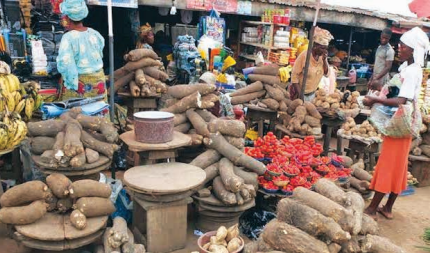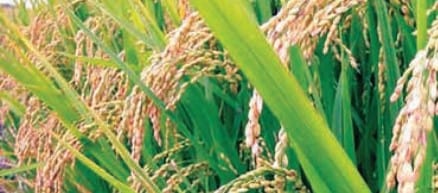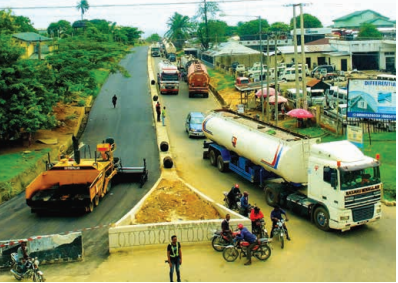Revisiting Agriculture for Growth and Economic Sustainability

Agriculture has been the main stay of our economy as a people prior to the colonization of Nigeria; and still remained a boaster to our economic development, to the extent that over 75 % of our national domestic products were exported from which we draw our foreign reserves. Until the discovery of petroleum, Nigeria invested seriously on agricultural products such as rubber, cocoa, cashew, timber, palm oil and coconuts.

Plantations were established especially in the south east where the then premier, Dr. Okpara opened large plantations at Boki, Ikom, Akamkpa, Odukpani and Akpabuyo for the cultivation of farm produce to boast commodities for national export. The intention of the leadership then was not only to invest in agriculture but to instill in the indigenous people of Nigeria the need to be involved in agricultural activities: as farming remains the only means of putting food on the table. Every family was encouraged to farm; and the government gave support in the form of distributing, machetes, hoes, shovels and fertilizer and provided facilities to boast their harvest as well.
The result brought increase agricultural products, including export commodities with millions of turnover which translated to export commodities. This is after the local communities have had more than enough for their subsistence; given rise to cross boundary trade as well as the aggregate domestic products which see Nigeria at the peak of groundnuts pyramid in the north, cocoa and rubber in the south west and palm oil, kennel, timber, cocoa, rubber.
Cocoa nuts, rice and cola nuts in the south fast. Additional products such as rice, yams, garri, plantain, maize, banana and local beans were commonly grown within the central and northern senatorial districts of cross river state with lorries lifting food items to the north and Cameroon. The state then fed itself and still had more to sell to other states of the federation especially the northerners; a situation that has been reversed with the southerners relying completely on buying their food stuff from the north.
It is no more a hidden fact that the leadership of the north has deliberately made it a government policy to support, monitor and sustain agricultural produce such as rice, yams, beans, maize, millets, tomatoes, onions and other grains, as well as encourage the availability of protein content to the citizens by sponsoring cow, piggery, and poultry business. It is an open truth that the central bank then under the leadership of Emir Mohammadu Sanusi was approving grants of over N5million to farmers in the worth to boast food production.
Their state governors too, gave generous loans with little or no interest to salvage the burden of farmers. As we all know, the silence but deliberate policy of the northerners to make the southerners dependent on them on almost all of their food requirements has come to pass. If the north should have course to close their market for a day, they will be food crisis in the south.
That is why it is most worrisome that no one seems to be bothered: not even the leadership; politicians, the rulers and even the youths. Everyone see farming as being stressful. No one cares about the financial reward that goes with it nor ponder about the long lasting effect of the neglect to our culture as a people or future generations. We are gradually being severed from the culture of our fore fathers: and have completely neglected our mothers land.
This is a threat to culture extinction if not checked. Consequently, there is a need to revisit our agricultural activities: by government, the politicians, leaders at various levels, family and individuals especially the civil servants. The civil servants because the common man is looking at them as a model: the reason everyone is going after collar job. The government as a matter of necessity should encourage and direct agricultural programmes as a state policy towards food sufficiency so as to raise a sound and healthy citizens to project its developmental projects.
Cross river state has been known to be a leading state in the introduction of ideologies and concepts. This they can do by ensuring that the following is complied with as a way of monitoring and strengthening the stability of agriculture at the state level.
1. MAKE AGRICULTURE A STATE POLICY
A law is seen by many as an instrument of control or punishment but on the contrary it is meant to direct people to do what is good; and to do it properly for the attainment of set objectives. It is therefore imperative for the government to come up with a policy or law mandating all civil servants and public servants (politicians) from the rank of grade level (7) and above to own and cultivate farms annually base on the kind of products they may desire to cultivate. This will reduce the burden of salary earners from buying everything they consume from the open market.
2. AGRICULTURAL LOANS
A flexible agricultural loans should be granted to public and civil servants according to their grade levels as a means of supporting the agricultural investment project; while loan refund system should commence six months from the date the loan was received. This will adequately equip them during the refund process.
3. AMEND COOPERATIVE LAWS
Agricultural cooperative society should be encourage by constant advocacy; as well as amend the laws towards making the process accessible and to maintain transparency within the society. There is also the need to increase the value of loan to be granted. Individual farmer can also be encouraged with short term probationary loans.
4. PROVISION OF EQUIPEMENTS
Agricultural activities like technology is dynamic, and is being globally transformed from its manual processes to mechanical. The use of hand in cultivating large hecters of land is longer fashionable. This is because it delays the process as well as wastes the farmer’s time and energy. Sometimes it brings about injury and sickness which may result to death. In the light of the above, it is advisable for the government to set the pace by procuring agricultural equipments such as tractors and other farming machineries for the clearing of land, tilling, planting and harvesting of crops . These can be put at the disposal of farmers to hire and pay a token to facilitate the process.
INTRODUTION OF MECHANISE FARMING
Mechanize farming is a systematic approach to farming which involves the use of agricultural equipment's such as machines, tools and inputs; simply refer to as technology: aimed at improving agricultural efficiency and productivity. This will promote farming as well as improve the welfare and wellbeing of the citizens.
CHALLENGES
A project of this magnitude is capital intensive since huge sums of money is required to procure machines, instruments and inputs; and coming at the time when revenue accruing to the state is dwindling continuously, it is impossible for the state alone to execute project of this nature. It is therefore imperative for the state as a matter of urgency to steer the boat by convening a stake holders forum on agriculture to include government officials; heads of ministries, agency and departments (MDAs; the private sector, captains of industries and the indigenous communities, to includes Local government chairman, paramount Rulers, prominent personalities, Clan heads, youth and church leaders to think out of the box as well as seek for a permanent solution to agricultural investments towards increase productivity.
The stake holders forum should among others address the following;
1. Machineries and inputs for mechanize farming.
2. Irrigation system and water management tools
3. Precision agricultural technology such as GPS and drones for crops monitoring and management.
4. Automated farming system for green homes and indoor farming for our cities and urban dwellers.
5. Mechanize tools for crops processing and post harvest handling.
Furthermore, government should be committed to;
1. Invest on agricultural research and development programmes.
2. Provide incentives and subsidies to enable farmers adopt to mechanize framing practices.
3. Develop financial options and credit facilities for farmers.
4. Encourage and provide the enabling environment for organize private sector investment and adoption of machinery as an option.
5. Train and educate farmers on the use and maintenance of mechanize equipments.
6. Reintroduced farming as a compulsory subject in our primary, secondary and higher institutions, especially at the university level for research and projects execution to orientate the youths and the entire society to understand the rewards of agriculture to humanity.
In conclusion, we believe that the rewards our labour shall not be in vain if properly coordinated, monitored and manage.
• The following challenges should be fully addressed also:
• In efficiency and low productivity in our farming practices.
• Limited access to credit and financing burden.
• High post harvest loss due to inadequate processing and storage facilities
• Reduce dependency on manual labour and increase the use of technology.
• BENEFITS TO GOVERNMENT AND THE PEOPLE
• The youths and adults alike will appreciate and be firmly involve in farming.
• The cost of food items and other farm produce will drastically reduce.
• There will be over a hundred percent opportunities for self employment: that will reduce the problem of underemployment.
• And the government will gain by enrolling more tax payers; there by increasing the revenue of the state.
• And finally, there will be less youths restiveness, violence and crime as most of them shall be gainfully employed.
• As we round up the activities marking the 1st anniversary of the leadership under our enviable governor Senator, Bassey Otu Edet, we are looking forward to witness the unfolding of a new phase of the moment of sweetness which should be aimed at revisiting the agricultural sector of cross river state.
Sir Dynast Ikara



